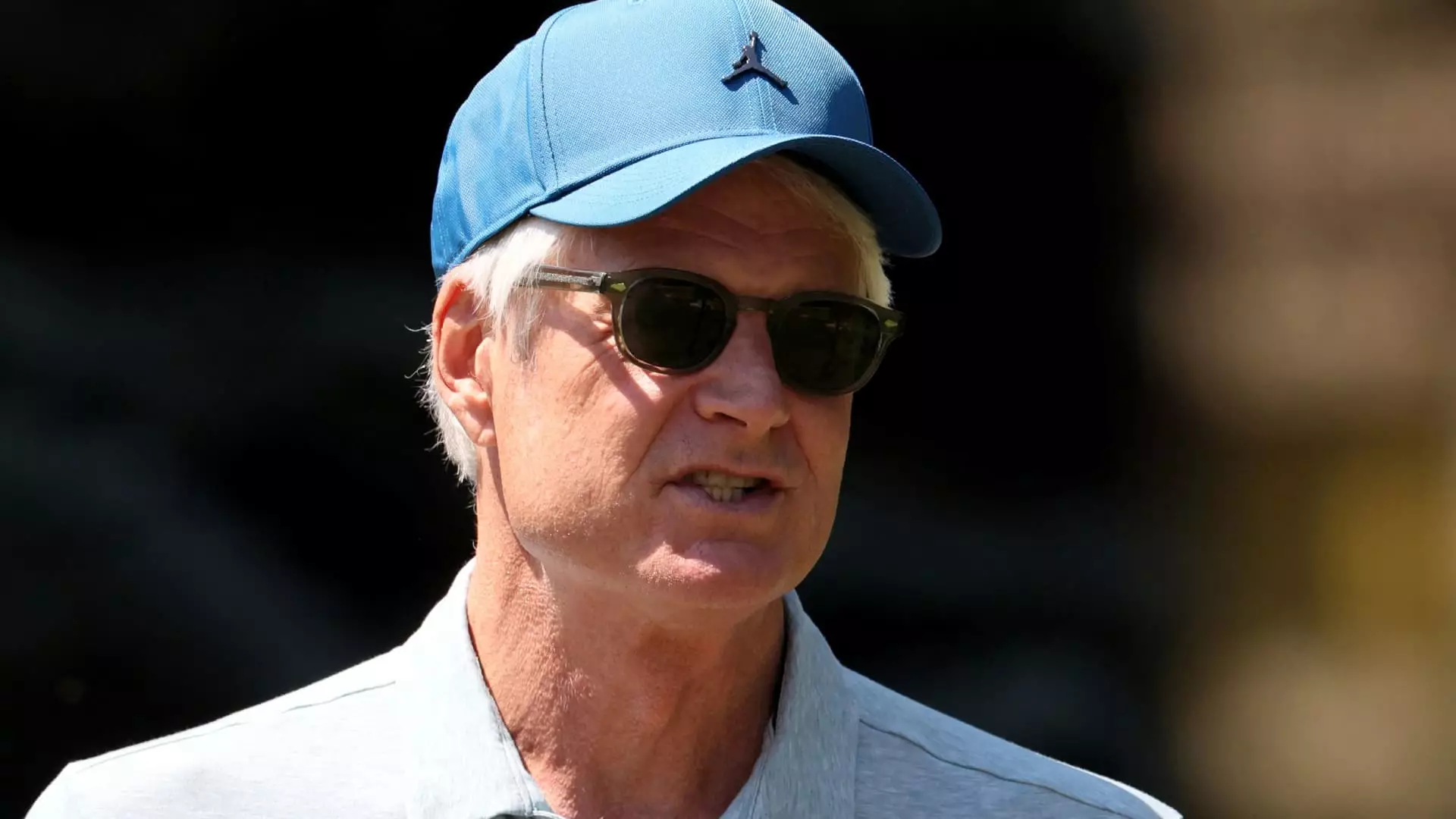Nike has recently undergone significant leadership changes that have sent ripples through the sports apparel and footwear industry. On a Thursday in October 2023, it was announced that CEO John Donahoe would be stepping down after nearly three years at the helm. His departure is set against a backdrop of challenges that include declining sales and a struggling market presence. As Donahoe prepares to retire, company veteran Elliott Hill will return from retirement to assume the role of CEO. This transition marks a pivotal moment for Nike, a corporation that prides itself on innovation and cutting-edge products.
Donahoe’s time at Nike has been anything but easy. He joined the company in January 2020 and has faced a series of hurdles, most notably a staggering 25% decline in company shares by the time of his exit announcement. The decline came despite a rise in share prices following news of Hill’s appointment. This dichotomy illustrates the complex landscape Nike navigated under Donahoe’s guidance, particularly as the company shifted its business model to a direct-to-consumer approach, thus phasing out traditional retail partnerships.
Elliott Hill is not a stranger to the complexities of leading Nike through turbulent times. Starting his journey with the company as an intern in the 1980s, Hill climbed the ranks to become the president of Nike’s consumer and marketplace division. His extensive experience and deep-rooted understanding of Nike’s culture and market dynamics are crucial assets as he prepares to take the reins. Hill’s appointment has been well-received by board members, including executive chairman Mark Parker, who believes that Hill’s years of experience and connection to the brand will prove invaluable for the company’s future.
In his own words, Hill expressed enthusiasm for leading Nike towards recovery and growth. “Nike has always been a core part of who I am,” he stated, showcasing his dedication and commitment to the brand. His sentiment underlines a critical aspect of leadership: understanding and embodying company values, which are more essential now than ever given the morale slump reported within Nike.
Nike’s Strategic Shift: A Quest for Innovation
One of the significant criticisms during Donahoe’s tenure has been the accusation that the company lost its innovative edge and creative culture. This sales strategy change, while designed to improve profit margins by selling directly to consumers, resulted in the underwhelming performance of new product launches. Industry experts have pointed out that during this pivot, Nike appeared to neglect its usual commitment to groundbreaking product development. As competitors like On Running and Hoka gained traction by filling the gaps in retail spaces vacated by Nike, questions arose about the company’s ability to reclaim its dominant market position.
Elliott Hill’s leadership will be scrutinized under the lens of innovation—a cornerstone of what Nike has long represented. Analysts suggest that Hill’s return could signify a reorientation around the fundamentals that established Nike as a leading force in athletic apparel and footwear. As Hill gears up for the challenge, his leadership experience will be crucial in rekindling the innovative spirit that has been somewhat stifled.
Addressing Employee Morale and Company Culture
Hill is stepping into an environment characterized by low employee morale and cultural disconnection. The looming implications of workforce downsizing—as Nike announced plans to lay off more than 1,500 employees in a $2 billion cost-cutting initiative—compound these challenges. As a leader who is well-liked and respected within the company, Hill will need to invest time and resources into rebuilding the morale of a disheartened workforce.
Experts like Jessica Ramirez emphasize that a successful transition back into a culture of motivation and innovation is essential for Hill. Not only should he focus on internal healing, but he must also prioritize creating a collaborative atmosphere that encourages creativity and risk-taking. His ability to adapt and leave a lasting impact on employee engagement will be pivotal for Nike’s recovery and long-term success.
As Elliott Hill steps into the CEO position, much is at stake for Nike. With falling sales numbers and increasing competition, he will need to secure not only the immediate recovery but also foster growth that aligns with the brand’s legacy. The dual challenges of reclaiming market position amidst a changing landscape and rejuvenating company culture will require strategic foresight and a clear vision.
Stakeholders and fans of the brand alike are cautiously optimistic about Hill’s return. They hope that he will steer Nike back toward the innovative, consumer-focused ethos that defined its rise and maintain its status as a leader in the athletic industry. The upcoming months will be telling as Hill endeavors to reinvigorate Nike and redefine its pathway toward success.


Leave a Reply